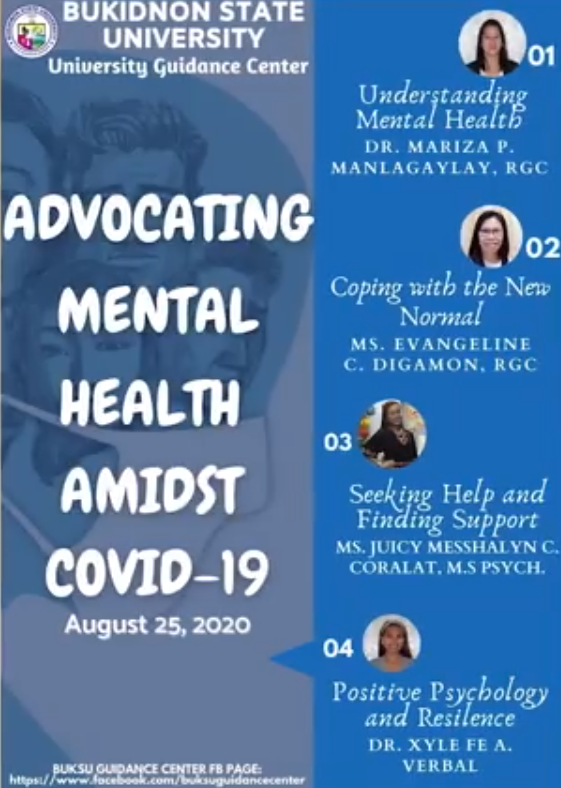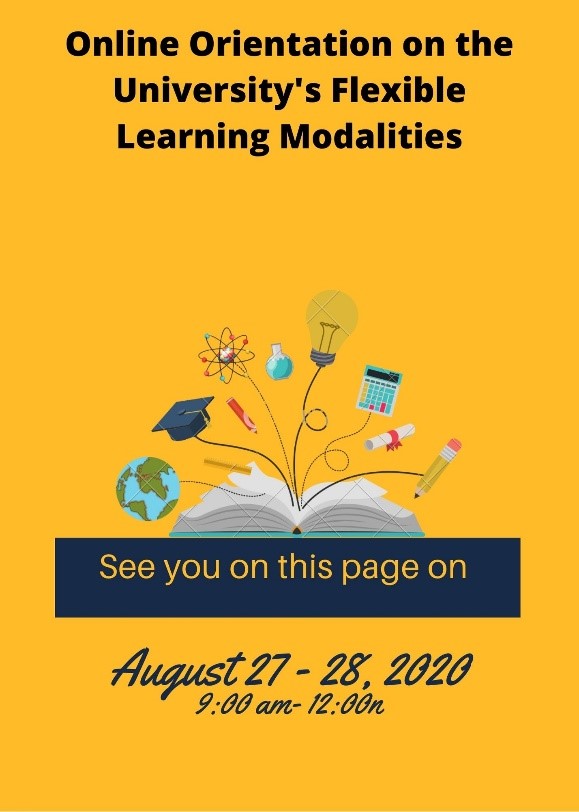

DSC_4229
DSC_4234




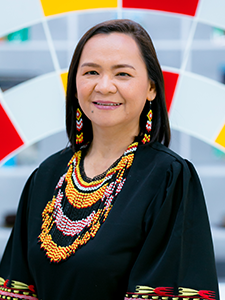
Home » Office of the Vice President for Academic Affairs
The Office of the Vice President for Academic Affairs is directly responsible to the President for carrying out the educational policies and programs of the University and in promoting and supervising instruction and other academic activities of the institution. It also directs the planning, implementation and evaluation of instruction, programs and activities to ensure effective training and education of students. It is composed of seven (7) colleges, namely College of Arts and Sciences (CAS), College of Education (COE), College of Business (COB), College of Administration (COA), College of Nursing (CON), College of Technologies (COT), and College of Law (COL). It also consists of nine (9) academic support units: Center for Innovative Teaching and Learning (CITL), Office of Student Services (OSS), Quality Assurance Office (QAO), External and Satellite Campuses (ESC), Botanical Garden and Herbarium (BGH), University Registrar (UR), University Library (UL), and National Service Training Program (NSTP), and Student Internship.
Objectives
1.1. Make the academic programs conform with the standards set by the national and international accrediting bodies
1.2. Fully implement the OBE framework in instruction
1.3. Integrate local, national and international priorities, and advocacies
Objectives
2.1. Forge academic linkages with other local and International HEIs and other partner agencies
2.2. Increase the faculty educational qualifications
2.3. Increase teaching competencies of the faculty on the OBE and innovative leadership approaches
Objectives
3.1. Develop innovative leadership competencies
3.2. Implement responsive programs for student support services
Objective
4.1. Make quality higher education accessible to IPs and poor but deserving students
Bukidnon State University received awards and commendations from the CHED Regional Office during the virtual Regional Quality Awards on July 17, 2020. One of recognitions was the Merit for Centers of Development. A Certificate of Merit was awarded to Dr. Oscar B. Cabańelez and BukSU “in laudable recognition of its potential for excellent performance in the areas of instruction, research and publication, extension and linkages and institutional qualifications as evident in the designation of the Teacher Education and English Programs as Centers of Development (COD) from 2016 to the present. The Commission also recognized the university’s complete submission of Student Affairs Services Reports, for strengthening the engagement of students and for conducting “fitness to purpose” and wide-ranging activities, programs and projects, reflecting its social responsibility commitment to the various communities.
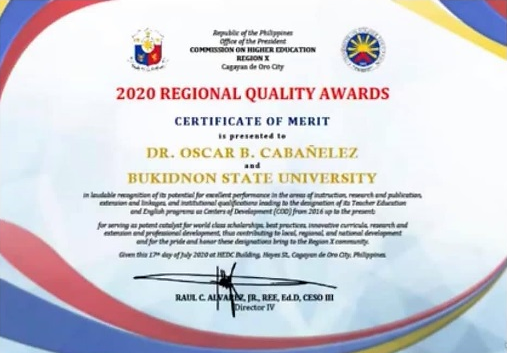
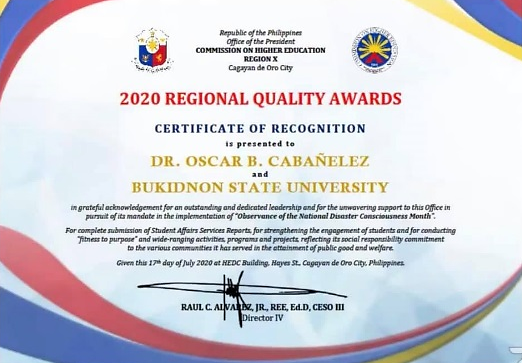
With the disruption in education brought by COVID-19, the structure of learning has shifted tremendously. Bukidnon State University maintains the continuity of education without comprising quality and the well-being of the students and faculty. So, in response to these changes and the Commission of Higher Education’s directive to shift to flexible learning, Bukidnon State University prepared its faculty in the new learning modalities. Four trainings were conducted to upscale its faculty to design and create learning resources and environments for students to a more focused content and select the core competencies they need to develop.
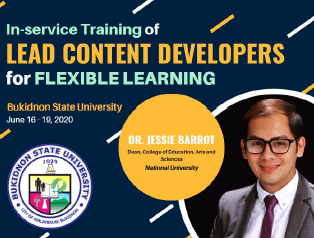
With the disruption in education brought by COVID-19, the structure of learning has shifted tremendously. Bukidnon State University maintains the continuity of education without comprising quality and the well-being of the students and faculty. So, in response to these changes and the Commission of Higher Education’s directive to shift to flexible learning, Bukidnon State University prepared its faculty in the new learning modalities. Four trainings were conducted to upscale its faculty to design and create learning resources and environments for students to a more focused content and select the core competencies they need to develop.
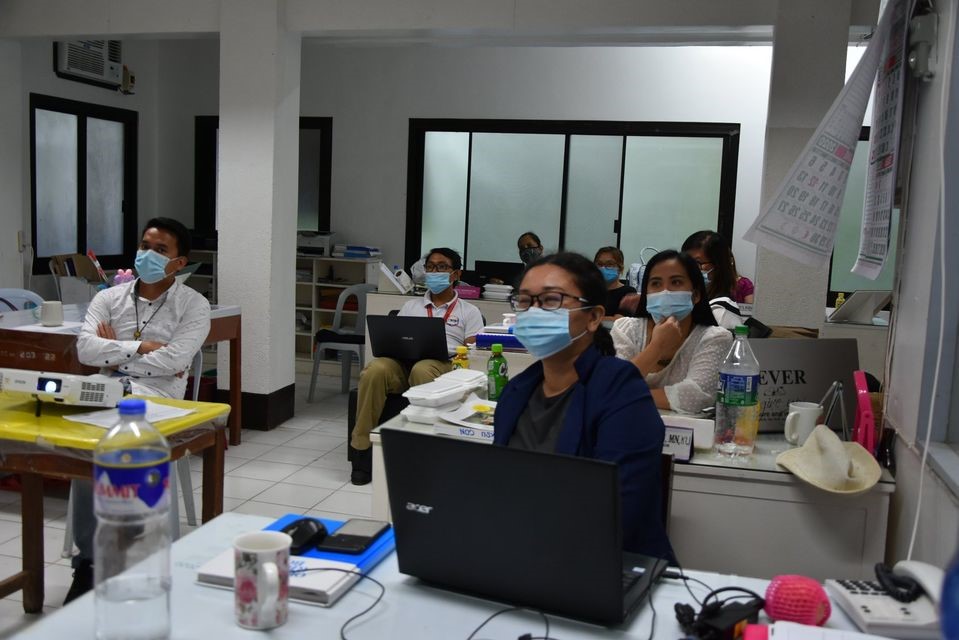
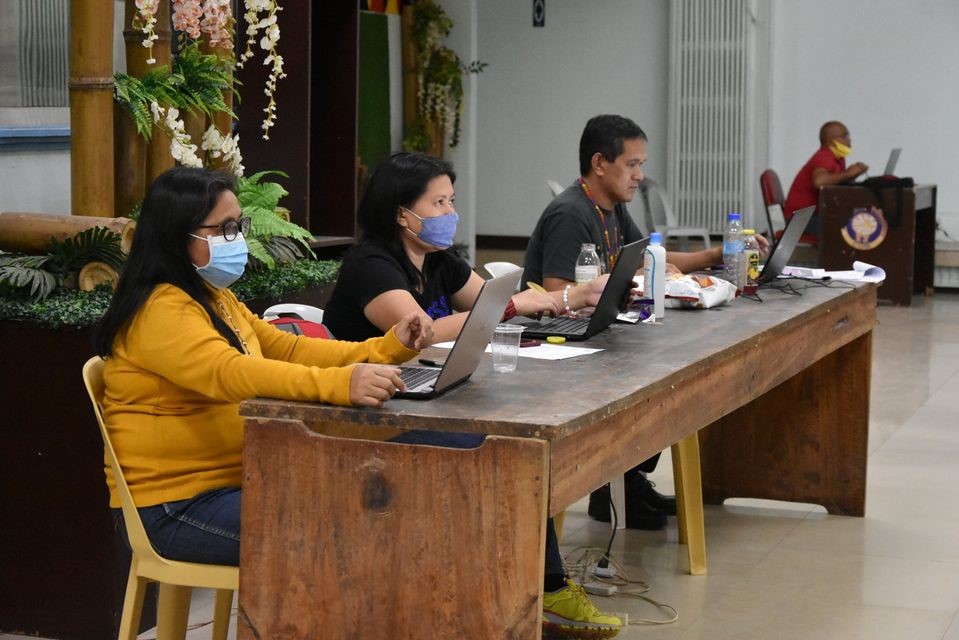
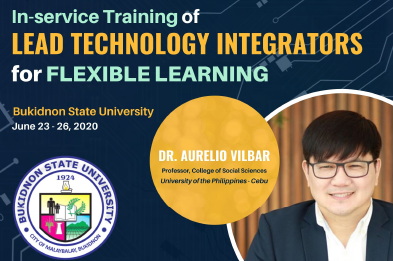
With the disruption in education brought by COVID-19, the structure of learning has shifted tremendously. Bukidnon State University maintains the continuity of education without comprising quality and the well-being of the students and faculty. So, in response to these changes and the Commission of Higher Education’s directive to shift to flexible learning, Bukidnon State University prepared its faculty in the new learning modalities. Four trainings were conducted to upscale its faculty to design and create learning resources and environments for students to a more focused content and select the core competencies they need to develop.
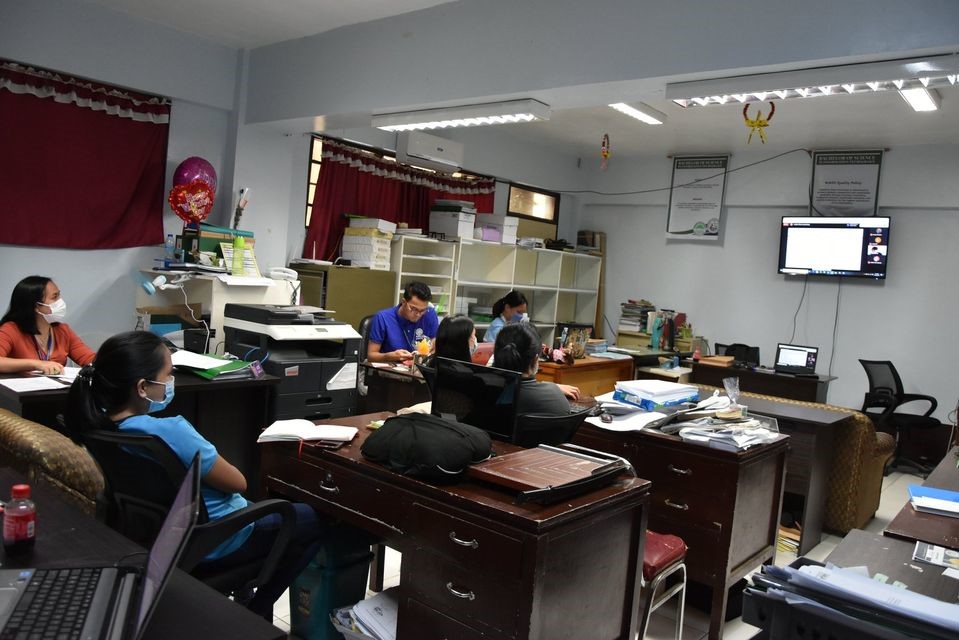
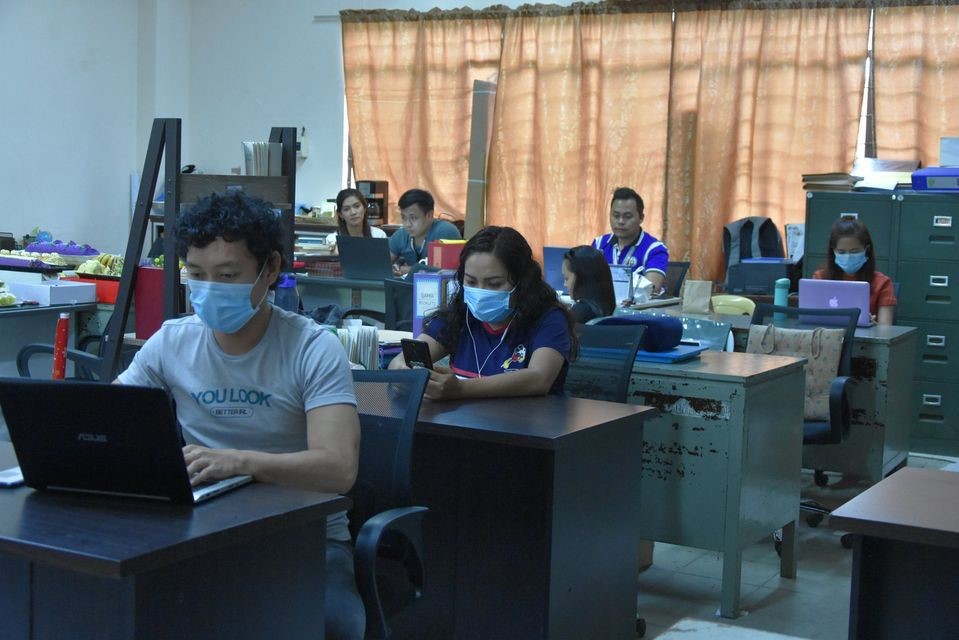
On October 21, 2020, the one-day webinar provided the faculty with a technological resource that they could use to enrich their instructional materials for their e-classes. With the VPAPD, Mr. Dante S. Victoria, Jr. as the resource speaker, this webinar specifically guided the faculty in creating video lectures using a free internet application. It was expected that the faculty would be able to improve their teaching skills in technology integration in flexible learning. The lecture-videos were content-validated for improvement.
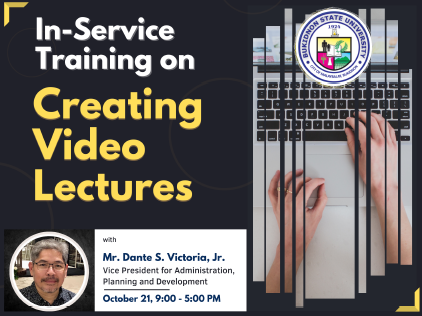
On November 4, recalibration of the syllabi of second semester subjects was conducted. In the plenary session, the faculty from all colleges reviewed the policies and guidelines relevant to the recalibration of the syllabus. Sample syllabi were presented by college in the afternoon session of the activity. Review was conducted by program level before the CITL and QA evaluated the syllabi. The VPAA was the last signatory of the reviewed syllabi.
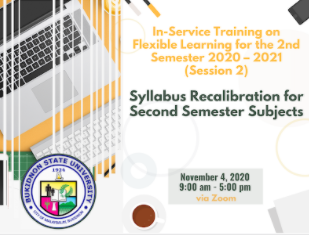
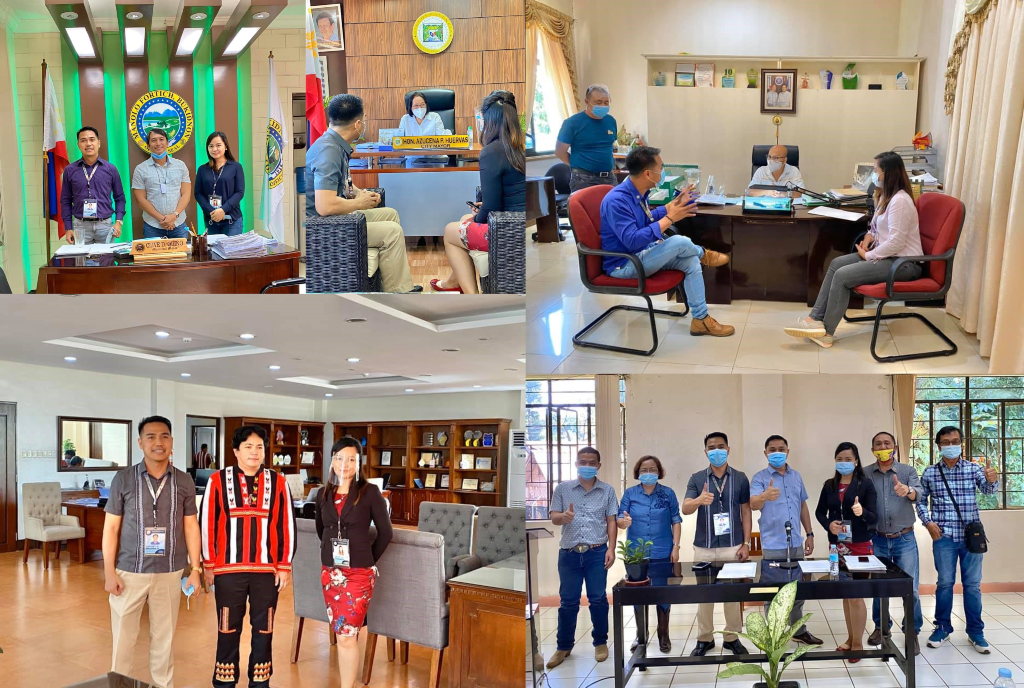
Bukidnon State University, through the Academic Unit, forged partnership on Flexible learning with the Local Government Units of the Province of Bukidnon. Dr. Lorenzo B. Dinlayan, III, the newly designated OSS Dean and Ms. Sansehry Delos Santos, OSS Faculty Associate visited the different municipalities for the signing of Memorandum of Agreement (MOA). This LGU caravan started last August 24, 2020. The different municipalities of the province are the active partners of Bukidnon State University in delivering quality education by providing learning hubs and drop off points for the learning modules.
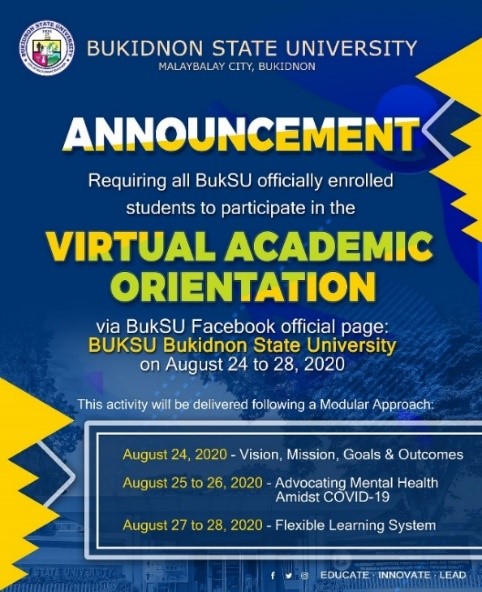
Last August 24-28, 2020, the OVPAA conducted a virtual orientation to assist the students as the University transitions to the new normal in higher education. The first module on VMGO was prepared by the OVPAA headed by Dr. Hazel Jean M. Abejuela. The seven-minute video which was shown via live streaming through the official Facebook account of Bukidnon State University, acquainted the students with the vision, mission, goals and outcomes of the university. It also presented how BukSU lives out its tag line “Educate, Innovate, Lead” as manifested in the accomplishments of the faculty and students in particular and the university in general.
The second module was on the psychosocial well-being from the University Guidance Center. The guidance counselors of the different colleges headed by Dr. Mariza P. Manlagaylay, RGC, the Guidance Center Coordinator, gave an e-lecture on four topics related to mental health amidst COVID-19 pandemic. Finally, the third module was on Flexible Learning System which prepared the students for their first semester, 2020-2021 classes
